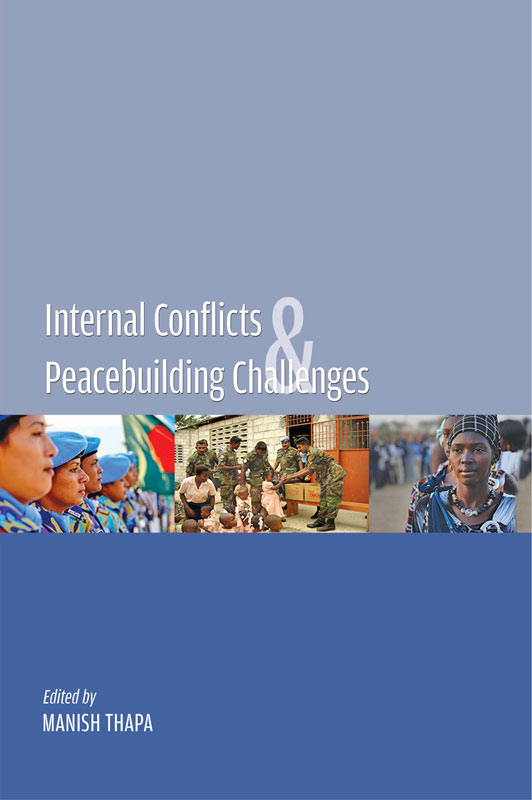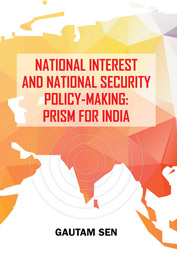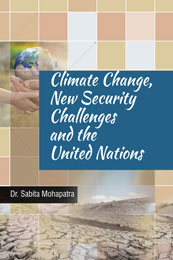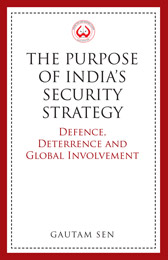The end of the Cold War and fundamental changes taking places in international system has altered the nature of armed conflicts. Since the late 1980s, the main threat to regional and global peace has not come from major inter-state confrontations, but from another source: internal conflicts, conflicts occurring within the borders of states. These internal conflicts often involve ethnic and cultural tensions, religious and tribal rivalries, as well as domestic power struggles for governance. Internal conflicts reflect fundamental clashes between peoples of different ethnic groups, different cultures, and even different civilizations. Distorted images, excessive fear and distrust, fundamental divergences on political, economic and religious values, which are products of centuries, are all in play. Most of the time, the absence of a clear battlefield and the involvement of multiple parties with uneven force make these situations even more problematic. Therefore, internal conflicts are rather difficult to manage and resolve.
This volume examines the challenges in post conflict peacebuilding efforts and the difficulties in building a sustainable peace in societies recently destabilized by internal armed conflicts. Various issues in post-conflict peace building efforts such as democratization, governance, reconciliation, DDR, security sector reforms, education, reconstruction etc. are analysed with case studies from Nepal, Sir Lanka, Côte d’Ivoire’s, Sierra Leone, Nigeria, Philippines, Colombia, East Timor, Liberia and India.
Edited by - Manish Thapa
Manish Thapa is Resident Professor of International Peace Studies at Department Peace & Conflict Studies in United Nations mandated University for Peace (UPEACE) in Costa Rica. He is one of the founding members and Assistant Professor of Peace Studies at Department of Conflict, Peace & Development Studies at Tribhuvan University in Nepal (2007-2015). He is currently Visiting Professor at the Institute of International Relations, University of Warsaw, Poland. He has held number of fellowships including Brown International Advanced Research Institute Fellow at Brown University (2011), Erasmus Mundus Visiting Scholar at Institute of International Relations at University of Warsaw (2010-2012); Robert McNamara Fellowship (2009-2010) from the World Bank; RONPAKU Fellowship (2008-2011) from Japan Society for Promotion of Sciences (JSPS). He was Visiting Research Fellow at Department of Peace & Conflict Research at Uppsala University (2009-2010); Visiting Fellow at Kroc Institute for International Peace Studies at University of Notre Dame – USA (2008-2009) & Sauvé Scholar at McGill University in Canada (2006-2007). He is co-chair of the Internal Conflicts Commission at the International Peace Research Association (IPRA). He has published numerous books, journal articles and book chapters with leading publishers and journals. His recent publication is titled India in the Contemporary World: Polity, Economy & International Relations (London/New York/New Delhi: Routledge, 2014).
Contents
Contributors
Acknowledgements
Foreword
Introduction
Manish Thapa
Part-I: Democracy, Governance & Political Transformation
1. West Africa: What is Known of The Relationship Between Peace Governance, and Development?
Helen Ware
2. Political Engineering for Peace
Ramesh
3. From Revolution to Political Evolution: Political Transformation of Maoist Rebels of Nepal
Manish Thapa
4. Building Peace in Sri Lanka: Real Political Challenges from Post-War to a Political Situation
Supipi Jayawardena
Part-II: Youths, Education & Reconciliation
5. Youth Militias, Ethnicity, and the Impetus of Youth Militancy in Sierra Leone and Côte D’ivoire’s civil Conflicts
Dele Ogunmola
6 Youth and the Political Economy of Violent Conflict in Nigeria: A Vicious Cycle
Eyene Okpanachi
7 Three Models of Peace Education: Implications and Challenges for Societies Experiencing Internal Armed Conflicts
Reynaldo R. Ty
8 Community Reintegration and The Basis for Reconciliation in Colombia after 2003
Andrés Macías Tolosa
Part-III: Reconstruction, Migration & Security
9 Waste and Resource Management in Post-Conflict East Timor
Naori Miyazawa
10 Explainining the Migration Conundrum: The Politics of Migration and Ethnic Violence in Cote D’ivoire
Dele Ogunmola
11 Security Sector Transformation in Post-Conflict West African States: Sierra Leone and Liberia Case Studies
Isiaka Alani Badmus


 Political Science
Political Science



